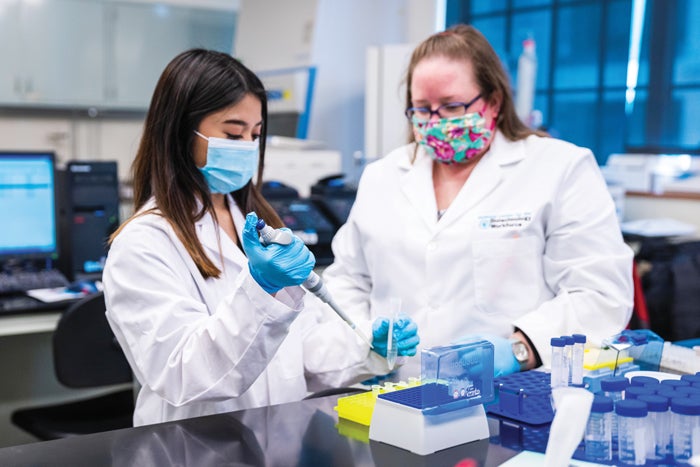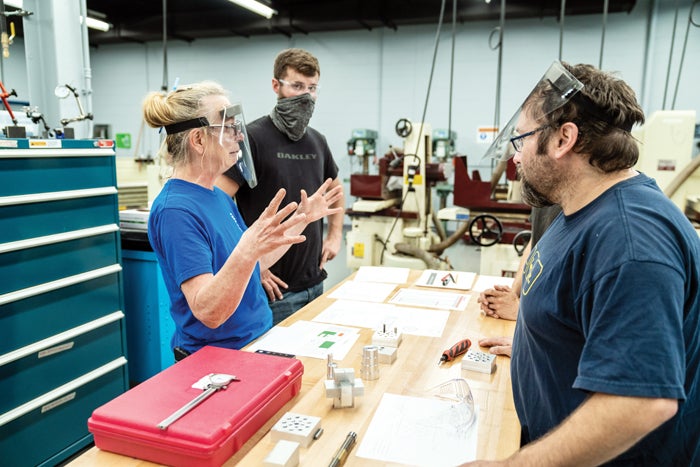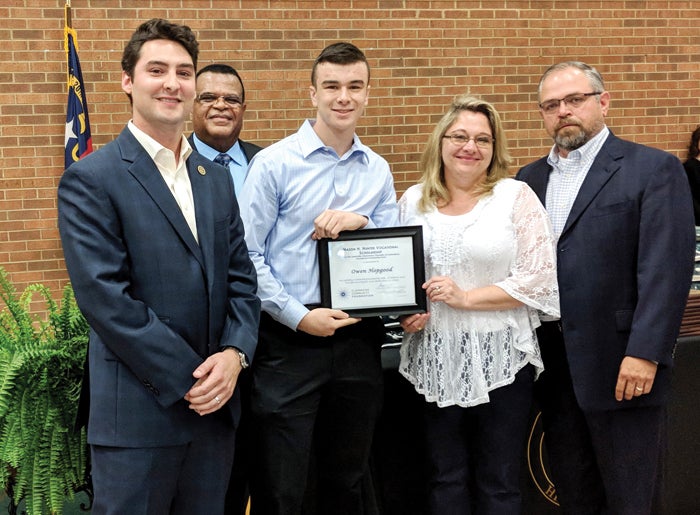Scholarship Series — Mason H. Hunter Vocational Educational Scholarship
Published 12:00 am Thursday, March 18, 2021
|
Getting your Trinity Audio player ready...
|
Editor’s note: Each week, the Courier will be taking a look at local scholarships and the people they are named for.
By Greg Keener
Clemmons Community Foundation
Like many other great things, this scholarship opportunity began as a simple idea.
“It started in 2018, when our board president, John Golden, had an idea to do something for students who wanted to have a great career that didn’t involve a four-year institution,” says Ditra Miller, CEO of the Clemmons Chamber of Commerce.
With a few steps along the way, that idea grew into the Mason H. Hunter Vocational Educational Scholarship of the Lewisville-Clemmons Chamber of Commerce. This opportunity, one of 16 managed by the Clemmons Community Foundation, benefits area students seeking to continue vocational and occupational education and training. The scholarship is open to graduating seniors from West Forsyth High School, Reagan High School, and North Davidson High School who plan to enroll at a local community college. Scholarship recipients may enjoy additional benefits, including opportunity for chamber member mentors, internships, references, and employment introductions and leads.
While the idea started with Golden, it soon also involved the Hunter family. Brad Hunter, also a member of the chamber of commerce, wanted to find a way to remember the life of his son Mason, who passed away unexpectedly in March 2018 at the age of 17. The two goals ended up working together in a special way.
Brad, his wife Shauna, and the chamber teamed with the Clemmons Community Foundation to create this vocational award specifically for students like Mason. “We knew Mason would probably go to Forsyth Tech. He could have gone to a four-year school, but he talked about being a chef or police officer. We talked about that path with him and he understood he could go to a community college to get those credentials,” says Hunter.
The once-simple idea took a more detailed and distinctive form. Next, the local community jumped in.
“The support the chamber received from the business community was awesome — it took a while, but we received so much support. We had a Mason Jar Campaign at Chick-Fil-A where people dropped in spare change. This scholarship came together from small donations like that to larger amounts and grants,” said Miller.
The result? A scholarship that will be offered annually, helping both the selected recipient and our entire community. Reflecting on Mason’s passing, Hunter says, “As tragic as the loss is, we can see how his scholarship, his memory, has impacted the community.”
The funds are there, and so is the need for qualified employees. Educators in the area can attest to this need as well as the benefits of this academic track.
“There’s no longer one path to a meaningful career,” said Dr. Jacob Surratt, vice president of student academic success and chief academic officer at Forsyth Technical Community College. “Some of the best jobs in our area do not require a four-year college degree and yet earn employees high wages. More and more, our students are finding the value in coming to a community college to seek out a career in one of our technical programs, such as welding, manufacturing, or electrical line working. Forsyth Tech is a catalyst for equitable economic mobility, and because of that, we are committed to matching our local employers with the talented and trained employees that they need.”
A quick look at U.S. Bureau of Labor statistics backs this up. North Carolina’s average annual wage for a welder is around $38,000. Electrical line workers can expect anywhere from $41,000 to $63,000, to name just a few.
The Piedmont Triad Regional Workforce Development Board (PTRWDB), an organization dedicated to connecting job-seekers with regional companies that are hiring, agrees. “Our mission is to help people land great-paying jobs in the N.C. Triad. In the past year, more than 6,500 technical positions were posted online. The average salary for these positions were $39,000 and some even went up as high as $71,000 ” said Wendy Walker-Fox, director of the PTRWDB.
For many of these careers, previous generations may have trained on the job, starting with only a high school diploma (if that). Manufacturing, for example, today is different from decades ago — involving technology skills, programming and much more. All of which could be studied by the scholarship recipient.
It’s important to note, even the basic terms “vocational” or “technical training” have also expanded from previous definitions. Today it includes bioscience technicians, aviation engineers, and technology experts of all kinds.
The local community has made this scholarship opportunity possible from the start. That spirit continues as the third year of applications starts to come in. Donations to the fund will help toward expanding the number of technical scholarships available.
“If anyone is interested in helping, no matter the amount, please contact the Clemmons Community Foundation. Every donation goes towards helping a young person have a better life. A better opportunity. And to help our economy — the dollars stay here,” says Miller.
As a result, more than just dollars will stay with our community.
“When we have the workforce our small businesses need, it helps our community and our economy grow. It helps young folks who want to stay here instead of picking up and moving to find opportunities,” says Miller. “It keeps our businesses and economy thriving for everyone.”
A real estate professional, Hunter sees this daily. He offers this on the importance of vocational training, “The biggest thing is for this generation to see the importance of occupational learning and the vital resource it is in our community — and how prosperous it is for those that go into that field after they have the credential.”
A trained student, credential in hand, walking towards a lucrative career. A life honored. A community engaged. All the result of one simple idea.
Greg Keener is program officer at the Clemmons Community Foundation.







